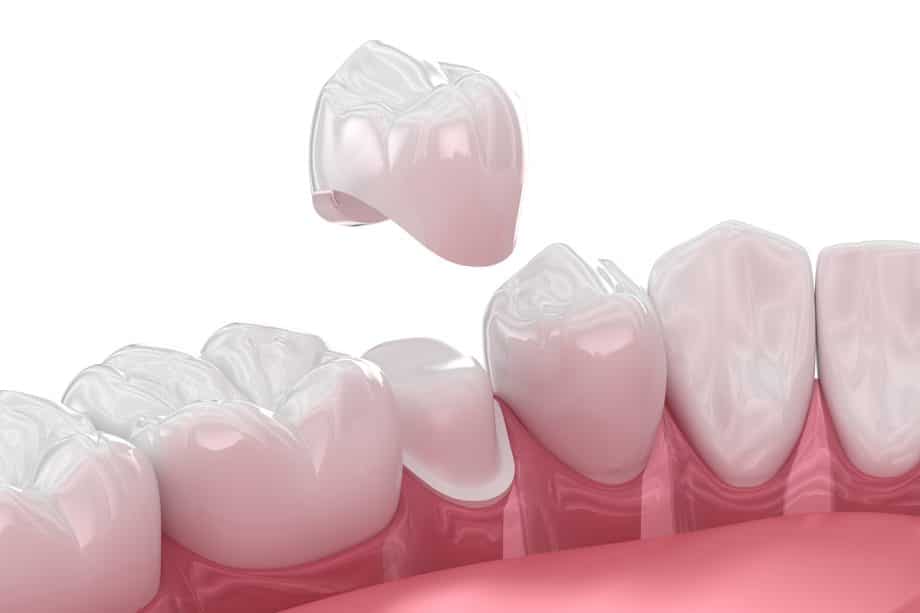Dental crowns are caps that cover prepared natural teeth. With a dental crown, your dentist can repair a tooth with too much damage for a filling alone.
Benefits of Dental Crowns
Preserve Natural Root System
When you receive a dental crown, your natural tooth stays in place. Keeping the root healthy and intact means the jawbone will continue receiving chewing stimulation.
Excellent Chewing Function
With a dental crown, you can eat nearly any food you want, though you may need to exercise caution with sticky foods to keep the crown from dislodging.
Long-Lasting
Dental crowns generally last between 10 and 15 years and can last for decades if they receive proper care and maintenance.
Attractive Appearance
A ceramic or porcelain crown looks very much like a natural tooth and can complete your healthy smile.
The Dental Crown Process
Getting a crown is a simple, non-invasive process. The first step is preparing the natural tooth. The dentist will remove damaged and decayed areas, leaving sufficient healthy tooth surfaces to attach to the crown.
At this point, the dentist will take a digital or physical impression of your tooth to ensure a perfect fit. Your dentist will use this information to create your new crown.
A traditional crown will arrive from the dental laboratory in a week or two. During this time, you will receive a temporary crown to protect your prepared tooth.
When the crown arrives, your dentist will adjust the fit and carefully cement it into place. You will go home with a complete smile.
Same-Day Crowns
The basic process for a same-day crown is similar to a traditional crown but with one significant difference: the crown is made in your dentist's office the same day. A digital impression helps the dentist plan your crown and mill it using an automated machine.
Materials for Dental Crowns
You and your dentist will choose the material for your crown based on your needs. Many valued patients prefer same-day ceramic crowns because they are strong and blend perfectly with their smiles.
Based on your chewing patterns and whether you grind your teeth, your dentist may also choose base metal, gold, or porcelain over metal materials.
Frequently Asked Questions About Dental Crowns
Which is better, a crown or a filling?
Both dental restorations have value. A filling can repair and reinforce a tooth with minor to moderate decay. A crown is better if the tooth is broken or has significant decay. Your dentist will let you know what they recommend for your tooth.
Should I get a crown after a root canal?
Patients who receive crowns after root canals have better outcomes, as natural teeth with endodontic treatment become brittle over time.
Call Oak Road Dentistry
A dental crown can improve your smile and restore chewing ability. If you want to learn more about crowns and how they can help you, please call our Snellville, GA, office at 770-985-9559. We would gladly schedule an appointment to evaluate your tooth.

